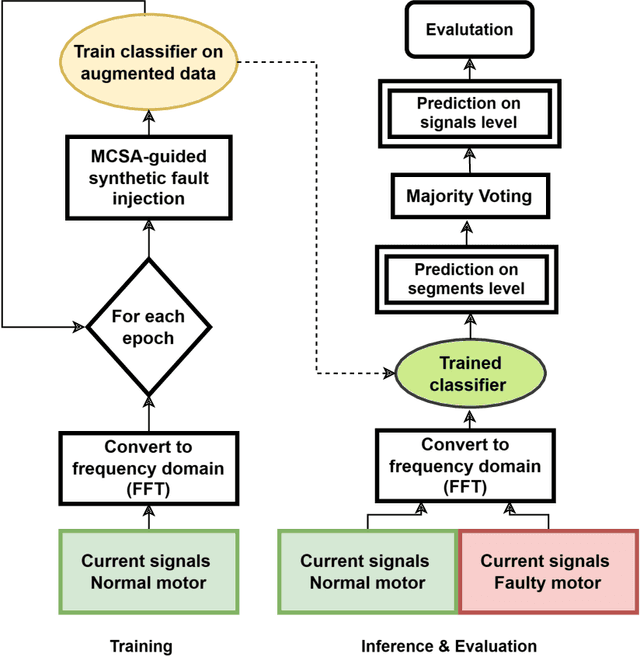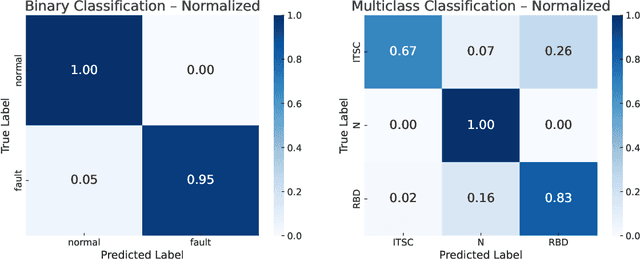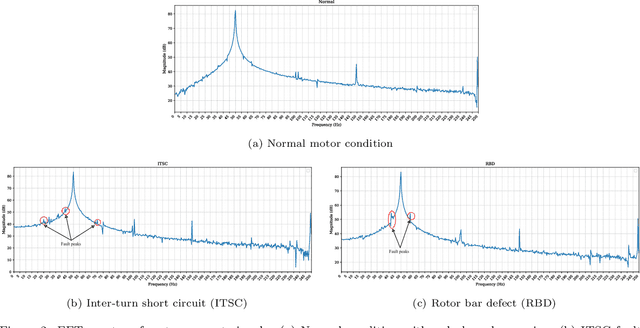Saraa Ali
Learning to Hear Broken Motors: Signature-Guided Data Augmentation for Induction-Motor Diagnostics
Jun 10, 2025



Abstract:The application of machine learning (ML) algorithms in the intelligent diagnosis of three-phase engines has the potential to significantly enhance diagnostic performance and accuracy. Traditional methods largely rely on signature analysis, which, despite being a standard practice, can benefit from the integration of advanced ML techniques. In our study, we innovate by combining ML algorithms with a novel unsupervised anomaly generation methodology that takes into account the engine physics model. We propose Signature-Guided Data Augmentation (SGDA), an unsupervised framework that synthesizes physically plausible faults directly in the frequency domain of healthy current signals. Guided by Motor Current Signature Analysis, SGDA creates diverse and realistic anomalies without resorting to computationally intensive simulations. This hybrid approach leverages the strengths of both supervised ML and unsupervised signature analysis, achieving superior diagnostic accuracy and reliability along with wide industrial application. The findings highlight the potential of our approach to contribute significantly to the field of engine diagnostics, offering a robust and efficient solution for real-world applications.
Intelligent Algorithms For Signature Diagnostics Of Three-Phase Motors
Nov 13, 2024



Abstract:The application of machine learning (ML) algorithms in the intelligent diagnosis of three-phase engines has the potential to significantly enhance diagnostic performance and accuracy. Traditional methods largely rely on signature analysis, which, despite being a standard practice, can benefit from the integration of advanced ML techniques. In our study, we innovate by combining state of the art algorithms with a novel unsupervised anomaly generation methodology that takes into account physics model of the engine. This hybrid approach leverages the strengths of both supervised ML and unsupervised signature analysis, achieving superior diagnostic accuracy and reliability along with a wide industrial application. Our experimental results demonstrate that this method significantly outperforms existing ML and non-ML state-of-the-art approaches while retaining the practical advantages of an unsupervised methodology. The findings highlight the potential of our approach to significantly contribute to the field of engine diagnostics, offering a robust and efficient solution for real-world applications.
 Add to Chrome
Add to Chrome Add to Firefox
Add to Firefox Add to Edge
Add to Edge